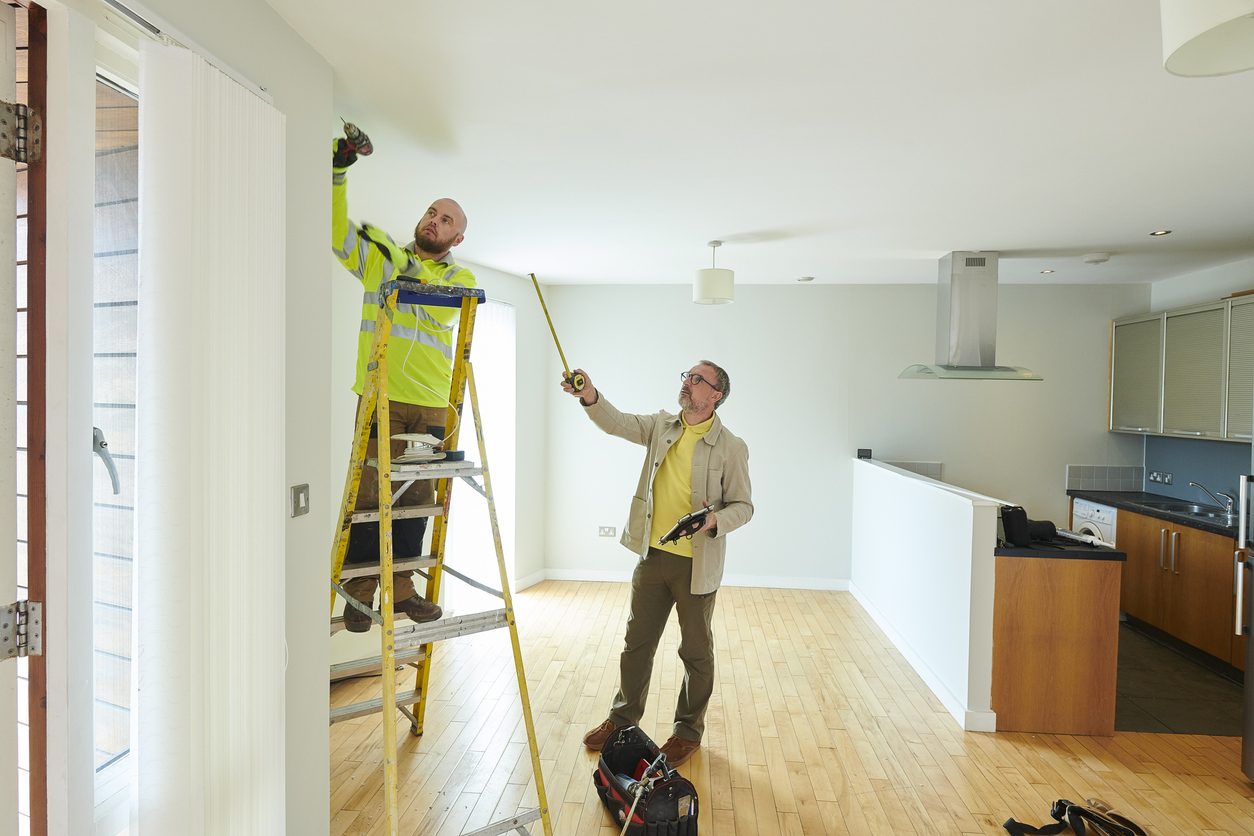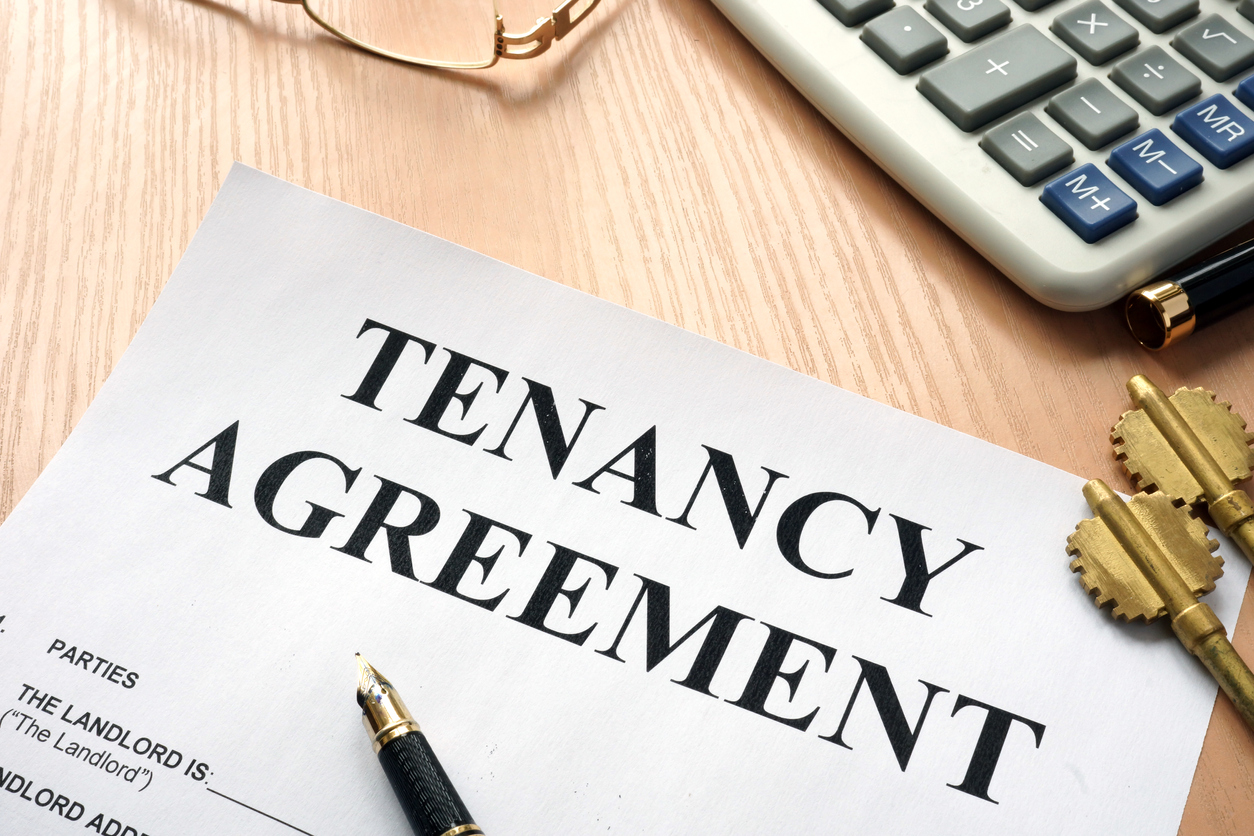We may earn revenue from the products available on this page and participate in affiliate programs. Learn More ›
Welcome to The State of Rentals with Bob Vila, a series dedicated to showing both landlords and tenants the crucial steps in finding the right property, potential challenges with renting, precautions to protect your interests, and ideas for making the most of your next move. We’ve included current market trends mixed with Bob’s tried-and-true advice, our vetted shopping guides, and the behind-the-scenes tips you need to make your rental a home.
The rental real estate market has seen massive changes in the last 3 years, ignited primarily by the Covid-19 pandemic. Low interest rates skyrocketed home prices from 2020 to 2022, and rents also were affected, increasing as much as 29 percent in a single year.
The good news for renters is that the national median rent has steadily declined in the past year, and as of February 2023 the median U.S. rent was down 16.5 percent compared to February 2022. However, the median asking rent is 21.4 percent higher than it was in February 2020, making these past few years also a profitable time for landlords.
While the lowering rents are encouraging, Redfin Deputy Chief Economist Taylor Marr says in a February report that rent costs are unlikely to decline much more since landlords have to account for inflation and rising operating costs. Zillow research also predicts that builders will focus on rental properties in 2023, and this year will see a huge influx of first-time landlords, which might help lower or stabilize rent prices across the country.
Whether you’re looking to become a landlord this year, have rental properties already, or are one of the 44 million U.S. households that rent, it’s important to educate yourself on this market and its challenges and advantages so you can make informed financial decisions.
Essential Tips for Renters
While buying a home is often seen as a good investment, there are advantages to renting that many overlook. From the start, renters typically must pay a security deposit and an extra month of rent before moving in; some also must pay a small application fee. Beyond that, tenants are responsible only for paying the monthly rent and don’t have to save up for a large down payment as they would if purchasing a home. After you move in, most lease agreements cover repair and maintenance costs, saving you money when things go wrong. In addition, you can look for a rental that includes things like lawn service, HVAC filter replacement service, and monthly tenant perks like community gatherings or prize drawings.
Choose the Right Rental

If you choose to rent, it’s important to find a place that fits your lifestyle. Make a list of your priorities, and consider the following before signing a lease:
- Type of Property: Renters can choose to lease a single-family home, townhouse, condo, or apartment. All properties have different advantages and disadvantages. For example, a single-family home comes with a lot more space, but the lease may require the tenants to be responsible for maintenance like mowing the lawn or shoveling snow. An apartment can offer the convenience of amenities such as a pool or clubhouse. Depending on how you spend your free time, what you want in a neighborhood community, and whether you live alone or with others, choose a rental type that will fulfill your top needs.
- Location: Is the property located in a spot that’s near your work? Or is it close to family or friends? How about proximity to transportation, groceries, and dining or entertainment? If you choose a house, you might have close access to a public park, while an apartment is more likely to be located near shopping and restaurants.
- Finances: How much money you can afford to spend on rent each month is a primary consideration. Also add in extra costs, such as lawn maintenance, annual lease renewal fees, and additional fees charged by the property owner. Many landlords also have a minimum credit score for you to apply for the rental, so be sure to check your eligibility before paying the application fee.
- Rules About Pets: If your furry friend is moving with you, make sure to check with your landlord or property manager about the rules on pets. Some landlords welcome pets, but others may allow small pets only or none at all. Landlords might tack on pet fees or deposits, so be sure to consider those in monthly or move-in costs when comparing properties.
- Parking: Ask your landlord about the parking at the rental and whether it’s included in the monthly rent price. Some larger apartment buildings add an additional cost for covered or garage parking, while other properties may have parking available on the street only. House rentals might have rules about parking on the street or the number of cars allowed at the home.
MORE ON CHOOSING THE RIGHT RENTAL AND MOVING
➤ Renters: What to Know About Pet-Friendly Apartments
➤ Moving Container vs. Truck Rental: Which One is Better for Moving?
➤ Renters: What to Clean Before Move-In Day
Sign the Lease

When you find a place you love, it’s easy to skip to the bottom of the document and sign, but renters should read the lease terms carefully before signing any contract. Make sure the details are terms you can live with and adhere to while you remain at the property. Common terms include occupancy rates that determine how many people can live with you in the rental, length of tenancy, and what happens at the end of your lease period.
Renters insurance isn’t always required, but many landlords or property management companies require tenants to purchase renter policies for unexpected problems. But wasn’t that what the security deposit was for? Well, sort of. The security deposit covers damage to the rental property itself, while an insurance policy protects your belongings, among other things. Rental insurance covers:
- Personal property damage if any of your belongings are stolen or damaged.
- Liability and medical costs in case someone is hurt in your rental.
- Loss of use, which covers the cost of another place to live in the event the property becomes uninhabitable.
The national average cost of renters insurance is nearly $180 per year, or about $15 a month. A policy is an affordable expense for some renters who want to protect themselves from potential unexpected events.
To make sure you get your security deposit back at the end of your lease, be sure to follow the lease terms as they are written. Make sure to give your landlord your move-out notice in the time frame laid out in the lease, and be sure to clean and leave the space in the same condition it was in when you first moved in.
MORE ON THE TERMS OF YOUR LEASE
➤ 8 Things Renters Should Always Look for on Their Apartment Leases
➤ Don’t Forget This Important Step After Signing Your Apartment Lease
➤ Solved! Is Renters Insurance Worth It?
Communicate with Your Landlord

Your property owner or manager can make or break your renting experience, which is why it’s important to meet them and determine if you can have a good leasing relationship with this person. If you’re living in an apartment or condo, you might be dealing with an administrative staff rather than the property owner directly. Are they communicative and organized? If not, you could run into issues later. For rental homes, you might meet the owner or a manager hired by the owner to work with tenants and maintain the property. Either way, make sure you are confident in their trustworthiness, and evaluate how they respond to your questions and concerns early in the process. Watch for these potential hurdles:
- Discriminatory Practices: Look out for any discriminatory practices early in your rental search. The Fair Housing Act prohibits housing discrimination because of race, color, religion, sex (including gender identity and sexual orientation), disability, familial status, or national origin. Unfortunately, discrimination still can happen in situations where a landlord sets different lease terms for a tenant or falsely denies that housing is available. It’s important to know what potential circumstances the Fair Housing Act prohibits so you can act quickly in case you experience any discrimination.
- Verbal Agreements: Getting everything in writing is a good way to protect yourself against a number of challenges when renting. If you have verbal agreements with your landlord or property management company that aren’t outlined in the lease, you’re susceptible to the landlord changing their mind or holding you responsible for not following the lease terms. If something comes up midway through the lease term, such as an agreement to paint the rental, be sure to have the landlord send you an updated lease or separate written agreement for your signature. Get in writing who is responsible for the cost and labor, and whether the paint will need to be changed back at the end of the lease to avoid any frustration or confusion. Most permanent changes to the property aren’t allowed under a lease agreement, but there are improvements you can make that are temporary if you want to avoid any contract issues.
If other challenges come up during your lease, it’s always best to be honest and upfront with your landlord. You should immediately contact them if there are property problems that are worsening quickly and could cause bigger issues, such as a broken furnace in the winter. If there are issues that you’re not sure if you need to contact your landlord for, such as a pest sighting, it’s best to wait a day or two to confirm the problem is persisting before escalating the issue.
Renting in today’s market can be the right financial and personal move for you if your priorities are in line with the benefits and challenges that may arise. Low maintenance, less upfront cost, and varying amenities make rental living attractive and a potential long-term situation. To get the most out of your home, choose your rental carefully, pay attention to the lease details, and keep communication open with your landlord. You could have many satisfying years in the right place.
MORE ON COMMUNICATING WITH YOUR LANDLORD
➤ Renters: How to Know If You’re Being Discriminated Against and What to Do About It
➤ Renters: When to Accept an Oral Agreement and When to Insist on a Written Contract
➤ 9 Things You Shouldn’t Hide From Your Landlord
Essential Tips for Landlords
For years, being a landlord has been seen as a lucrative business as a full-time job or supplementary income and for good reason, too. More than two-thirds of landlords earn $90,000 or more a year and most spend less than 40 hours per month managing their properties. Whether you’re at the beginning of your career as a landlord or an experienced property owner, consider all the factors as you grow your business.
Time Your Purchase

Buying a property is an investment of time and money, no matter if it’s your first rental or your fifteenth. Before you jump into a purchase, you’ll want to look at your available funds and break down a potential budget for your rental property. You’ll need a down payment and money set aside for unexpected expenses such as repairs. You’ll also want to make sure you can cover 1 to 2 months of mortgage payments and utilities in case the property sits vacant.
If you don’t want to pay cash for the rental, there are a number of ways to finance a real estate investment, including what’s known as the BRRRR method, which stands for buy, rehab, rent, refinance, and repeat. This method allows you to make money off your rental so invest in the next rental property. There are also a number of loans available, including loans for flipping houses.
Existing property owners who want to expand their holdings should make sure to have the necessary resources for fixing up and maintaining a new property without taking away from the quality of other investments. At this stage, pinpoint your goals for real estate investing, and consider a short-term rental strategy or purchasing a multi-family property.
Then consider factors that could make or break your purchase.
- Evaluate the area. Look for potential problems in the neighborhood or city and look at forecasts for future growth. Also get acquainted with your state’s laws. Every state has different regulations for residential real estate, so make sure you understand what responsibilities you’ll have once you become a landlord.
- Learn local laws. Some states have a landlord license requirement, and all of them have laws concerning the landlord-tenant relationship, including regulations on repairs, lease agreements, and evictions. Be sure you understand tenant rights as well as landlord rights.
- Purchase landlord insurance. Landlord insurance protects your investment property as well as any property held within the building (such as furniture if you’re providing a furnished rental). It also provides liability coverage in case a tenant is hurt on the property. It’s similar to homeowners insurance, but homeowners insurance covers only property where the policy holder resides. A home warranty policy can also help save money with potential repairs and maintenance.
- Get the property ready for tenants. You’ll want to make sure the property is up to code and make any necessary cosmetic repairs or updates before you have tenants move in. Remember that the rental needs to be comparable in value to the neighboring residences, and don’t go too far. You can overimprove a home and make it more difficult to rent. Give it a deep clean, and stage the property before you take listing pictures to make it look more appealing.
Engage a property management company. Being a landlord comes with many responsibilities and headaches, which is why some landlords choose to hire a property management company to handle some or all of the logistics of renting a property. While helpful, it’s not required and 45 percent of landlords manage their properties themselves.
MORE ON BUYING RENTAL PROPERTY
➤ Is Now the Time to Buy Rental Property? 10 Questions to Ask Yourself
➤ Ready to Rent: Checklist for Owning and Operating Residential Real Estate
➤ To Buy or Not to Buy: 9 Things to Consider Before You Choose a Rental Property to Purchase
Establish Tenants

Ask any landlord and you’ll hear that the right tenants are the key to lasting success with your rental property. While there are several approaches you can take to find renters, a few steps will increase the likelihood of meeting the right people at the right time.
- List the property. Share the listing online or you can enlist the help of a real estate agent to market the property. There are multiple websites you can use to list your rental. Some of the best sites that generate the most leads for landlords are Apartments.com, Zillow, and Zumper.
- Sign tenants. When you find tenants who meet your financial requirements and are ready to move in, make sure to have them sign a rental agreement. This standard document sets expectations between you and the renters and avoids disagreements down the road.
- Maintain property and lease agreements. Even though the property is occupied, there will be ongoing maintenance and work to be done. Depending on the terms of the lease agreement, you as the landlord may decide to cover property repairs or maintenance such as mowing the lawn. Tenants aren’t the only ones who can violate a lease agreement, so it’s essential to keep up with the commitments you made to your renters.
MORE ON TENANT-LANDLORD RELATIONS
➤ The Best Tenant Screening Services
➤ Landlords: When to Evict a Tenant and Where to Start
➤ 14 Do’s and Don’ts for Selling a Property with Existing Tenants
Avoid Mistakes

Mistakes are inevitable whenever you try something new, but learning from experienced property owners can help. Here are a few mistakes new landlords tend to make and how to avoid them:
- Underestimating costs. Do your due diligence and research the costs of taxes, potential repairs, and other miscellaneous expenses that come with property ownership. It’s also best to be prepared with a savings fund that covers expenses should your property be vacant unexpectedly.
- Not fully vetting tenants. The best criteria to screen tenants typically include their credit history, legal history, income, and rental history. Calling previous landlords and verifying income through a W-2 form or paystub are steps to take in addition to credit and legal history searches. These steps help show that potential tenants can pay the rent, are likely to be reliable with payments, and have left previous rentals in good condition.
- Not getting all the lease terms in writing. Having terms in writing makes it clear to both you and the tenant who is responsible for various aspects of the lease. Evicting tenants is never easy, and landlords should always consult their state laws regarding tenant evictions. Typically, the most common causes of eviction are unpaid rent or when a clause of the lease agreement has been breached by the tenant. If this situation comes up, most states have a waiting period between 3 and 30 days to give tenants time to pay the rent or resolve the situation before landlords can begin the eviction process.
- Delaying maintenance and repairs. While it’s tempting to skip out on regular maintenance, keeping up with tasks like air filter changes and lawn maintenance can ensure that appliances and the rest of the property are in good shape to last longer.
Owning and managing rental property can be a rewarding experience if it’s the right time for you to invest and you have the resources to follow through. Various financing options, recent rental rate increases, and the prospect of recurring income make being a landlord an attractive option. Be sure to vet your property thoroughly before you buy, screen tenants, and create a realistic maintenance and management plan that fits with your goals and lifestyle. A second career in real estate investing could turn into a primary source of income.
MORE ON OVERCOMING OBSTACLES AS A LANDLORD
➤ 12 Financial Pitfalls to Avoid As a New Landlord
➤ 5 Financing Options to Kick-Start Your Real Estate Investing Career
Final Thoughts
As housing prices stay high despite high interest rates, more and more households will continue to rent their homes rather than buy. If you have the means to purchase a rental property or already own a property you’d like to rent out, 2023 may be a great time to become a landlord or expand your rental property business.
Since the housing market is having difficulties due to higher interest rates, this year may be a better time than ever to be a renter. If rent prices continue to stagnate or decrease in metro areas across the U.S., renting will look more and more attractive.


